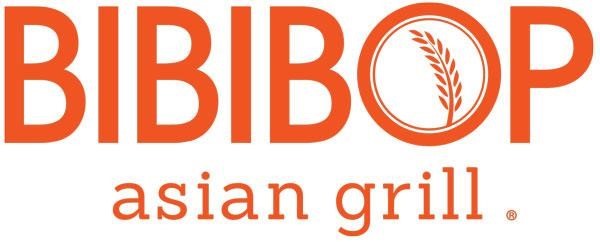

Nutrition facts and Weight Watchers points for Kimchi from Bibibop.
Calories
There are 20 calories in Kimchi.
Nutrition Facts
| Serving Size | ? | |
| Calories | 20 | |
| Calories From Fat | ||
| Amount Per Serving | % Daily Value* | |
| Total Fat | 0g | 0% |
| Saturated Fat | 0g | 0% |
| Trans Fat | 0g | |
| Cholesterol | 0mg | 0% |
| Sodium | 540mg | 23% |
| Total Carbohydrates | 3g | 1% |
| Dietary Fiber | 1g | 4% |
| Sugars | 2g | |
| Protein | 0g | 0% |
| Vitamin A | ? | |
| Vitamin C | ? | |
| Calcium | ? | |
| Iron | ? | |
*All percent daily value figures are based on a 2,000 calorie diet.
Nutritional information source: Bibibop
Allergens
We are working on getting the allergen information for this item.
Ingredients
We are working on getting the ingredients for this item.
Additional Information
Kimchi is a traditional Korean dish known for its unique and tangy flavor. It is a staple of Korean cuisine and has gained popularity worldwide for its health benefits. Bibibop, a popular Korean-inspired restaurant chain, offers kimchi as one of its cold toppings. In this article, we will explore the features, benefits, and drawbacks of Bibibop Kimchi.
Features of Bibibop Kimchi
Bibibop Kimchi is a flavorful and spicy fermented vegetable dish made primarily from cabbage and a variety of spices. It is prepared through a process of lacto-fermentation, which involves immersing the vegetables in a brine solution and allowing natural bacteria to ferment the sugars in the vegetables, creating a tangy and probiotic-rich food.
The exact ingredients and preparation methods for Bibibop Kimchi are not listed on the website, but it typically includes cabbage, radishes, scallions, garlic, ginger, and chili peppers. The fermentation process not only enhances the flavors, but also contributes to the formation of beneficial bacteria, such as Lactobacillus, known for their probiotic properties.
Benefits of Bibibop Kimchi
- Probiotic Powerhouse: Kimchi, including Bibibop Kimchi, is rich in beneficial bacteria that support a healthy gut microbiome. Probiotics help maintain a balanced gut flora, which is essential for digestion, nutrient absorption, and overall gut health.
- Nutrient-dense: Kimchi is packed with essential vitamins and minerals. Although specific nutritional information for Bibibop Kimchi is not provided on the website, traditional kimchi is known to be a good source of vitamins A, C, and K, as well as minerals such as calcium and iron.
- Antioxidant properties: The fermentation process used to make kimchi increases its antioxidant content. Antioxidants help protect the body from oxidative stress and reduce the risk of chronic disease.
- Spicy flavor: Bibibop Kimchi adds a bold and spicy kick to any dish. The combination of flavors from the fermented vegetables, garlic, ginger, and chili peppers creates a unique taste experience that many people enjoy.
Disadvantages of Bibibop Kimchi
- High Sodium Content: Kimchi, including Bibibop Kimchi, is typically high in sodium due to the fermentation process and the addition of salt. Individuals who need to limit their sodium intake, such as those with high blood pressure or certain medical conditions, should consume kimchi in moderation.
- Potential Allergens: Allergen information for Bibibop Kimchi is not provided on the website. It is important to note that kimchi often contains allergens such as fish sauce or shrimp paste. Individuals with specific food allergies or intolerances should exercise caution and inquire about the ingredients used in the preparation of Bibibop Kimchi.
- Individual Taste Preference: While many people enjoy the unique flavors of kimchi, it may not be to everyone’s taste. The strong and pungent flavor of kimchi can be an acquired taste, and some people may find it too spicy or hot.
Conclusion
Bibibop Kimchi is a flavorful and probiotic-rich topping offered at Bibibop restaurants. It offers the benefits of traditional kimchi, including its probiotic properties, nutrient density, antioxidant content, and spicy flavor. However, it is important to be aware of its high sodium content and the potential presence of allergens. Ultimately, whether or not you enjoy Bibibop kimchi depends on your personal taste preferences.
Questions and Answers
What is Kimchi?
Kimchi is a traditional Korean dish made through the process of lacto-fermentation. It is made primarily from cabbage and a variety of spices such as garlic, ginger, and chili peppers. The fermentation process gives kimchi its unique tangy flavor and creates beneficial bacteria known as probiotics.
What are the health benefits of Bibibop kimchi?
Bibibop Kimchi has several health benefits. It is a probiotic powerhouse that supports a healthy gut microbiome. The probiotics in kimchi aid in digestion and nutrient absorption. Kimchi is also nutrient-dense, providing essential vitamins and minerals. It has antioxidant properties that help protect against oxidative stress. In addition, kimchi adds a spicy flavor to dishes, enhancing the overall taste experience.
Is Bibibop Kimchi high in sodium?
Yes, kimchi, including Bibibop Kimchi, is typically high in sodium. The fermentation process and the addition of salt contribute to the sodium content. It is important to consume kimchi in moderation, especially for people who need to limit their sodium intake due to high blood pressure or other medical conditions.
Does Bibibop Kimchi contain any allergens?
Allergen information for Bibibop Kimchi is not provided on the website. However, it should be noted that traditional kimchi often contains allergens such as fish sauce or shrimp paste. If you have specific food allergies or intolerances, it is recommended that you inquire about the ingredients used in the preparation of Bibibop Kimchi.
Is kimchi for everyone?
While many people enjoy the unique flavors of kimchi, it may not be to everyone’s taste. The strong and spicy flavor, as well as the heat, can be an acquired taste. Some people may find kimchi too spicy or hot. It is a matter of personal preference and taste.